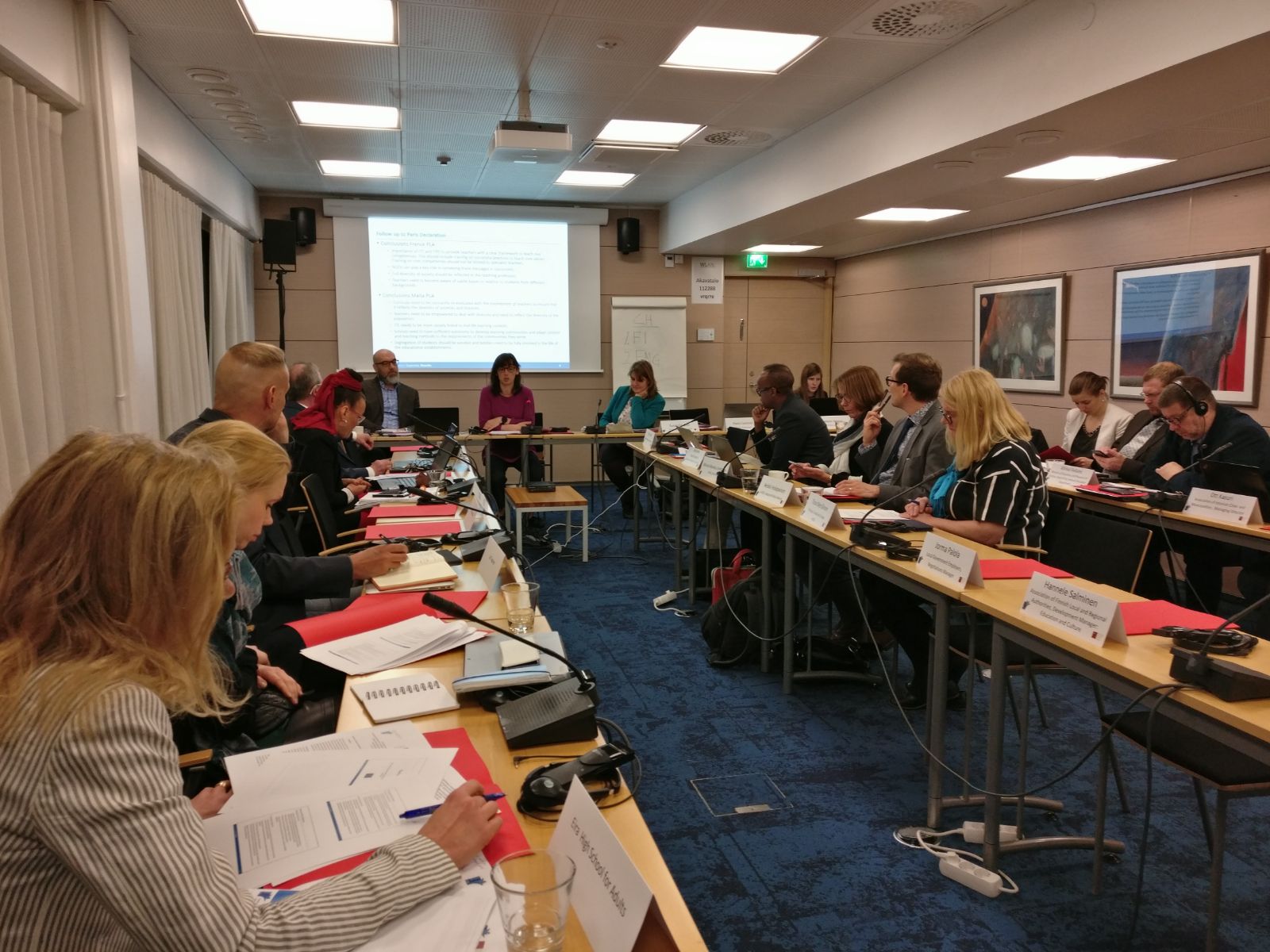European and Finnish social partners discuss challenges of integration and prevention of radicalisation of young students
Published:
On 24 of April 2018, the sixth round table meeting of the European Sectoral Social Dialogue in Education (ESSDE) Capacity building project III took place in Helsinki. During this meeting, representatives from ETUCE member organisation partner to this project OAJ, Opetusalan Ammattijärjestö and representatives of Finnish education employer organisations members of the European Federation of Education Employers (EFEE), such as the Association of Finnish Independent Education Employers (AFIEE) met around a table together with representatives from the Ministry of Economic affairs and Employment of Finland, the Helsinki City Council, the Helsinki Police Department, the Finnish National Agency for Education, Omnia and Eira High school for adults to discuss how to strengthen the links between the ESSDE and the national social dialogue. Current national and European priorities from the new ESSDE Work Programme 2018-2019 were addressed. Specifically, the main topic of discussion was the promotion of inclusive education through fostering citizenship and the common values of freedom, tolerance and non-discrimination and the prevention of radicalisation of young people. European and Finnish social partners were joined in the discussion by representatives from the Estonian social partners: ETUCE member organisation EEPU, the Ministry of Education and Research and the Association of Estonian Cities and Municipalities.
Despite the budget cuts to education in recent years in Finland, the long tradition and high level of institutionalization of the Finnish social dialogue was central to the discussion. Receiving information on the main rights enshrined in the newly proclaimed European Pillar of Social Rights and the ‘new start’ for social dialogue lightened a lively discussion which saw the partners agreeing on the value of a strengthened cooperation between the education social partners at all levels to contribute to the EU education policy-making. A clear example of how enhanced cooperation and mutual learning could support national policy making process in education rose during the core debates of the day on the Paris Declaration and how to promote common values, civic education, critical thinking, intercultural dialogue and democratic citizenship in education and to combat all forms of intolerance and social exclusion.
The key note speech by Professor Nihad Bunar from Stockholm University on the role of education in preventing and combating radicalization allowed participants to broaden the focus on the different kind of radicalization deserving attention, such as far-right, white power supremacy, violent Islamic extremism, and far-left, autonomous and violent animal rights’ movements. Participants debated over the question on whether students and pupils indicating signs of radicalization are more often treated as victims or as perpetrators, as this first definition changes the context in which the policy responses are taken. The social partners highlighted the dilemma of schools and teachers aiming at preventing radicalisation without being perceived as, and acting as, a proxy for intelligence and security services.
Susan Flocken, European Director of ETUCE commented on the round table: “Today’s engaging discussions demonstrate that a positive industrial climate with deep involvement of unions in the policy-making process is crucial. The debate emphasises that quality education is more than preparing young people for the labour market, it is about preparing young people to become active citizens of a community aware of their rights and responsibilities.”